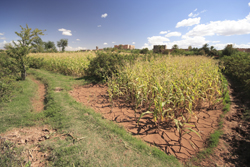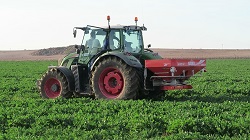Ensuring food security in the Mediterranean
Food crops in the Mediterranean are under more stress now than ever before. With increasing temperatures and climate variability, farms are facing drought and desertification. EU-funded science is taking action to improve vulnerable farming systems under the Sustainable water use securing food production in dry areas of the Mediterranean region (SWUP-MED) project. The research focuses on how crop rotation, supplemental irrigation and climate-proof crops can be used to improve yields and foster food security in the region. One SWUP-MED study has shown that rotating wheat, quinoa and chickpea crops over three years in Morocco and Turkey improved both yield and soil quality. In addition, quinoa used less water and had a higher yield than wheat, and it tolerated typical Mediterranean drought and salt stress well. The researchers tested different varieties of each crop to find those genotypes that are most resistant to multiple stresses. Genetic variations that allow certain crops to speed up their own development were found to yield the most grain, especially during drought. In terms of irrigation, the project found that by using treated wastewater to supplement rainfall, farmers could substantially improve crop yields and stress tolerance. Children are eight times more likely to suffer from water-borne diseases in wastewater-irrigated environments than in freshwater-irrigated areas. However, freshwater could be conserved for better use if wastewater intended for irrigation is treated to remove pathogens and heavy metals. The researchers have published a number of articles and book chapters as a testament to the quality and relevance of their work thus far. Currently, they are developing a model which could accurately predict how climate, irrigation and water quality will affect soil and crop yields.







